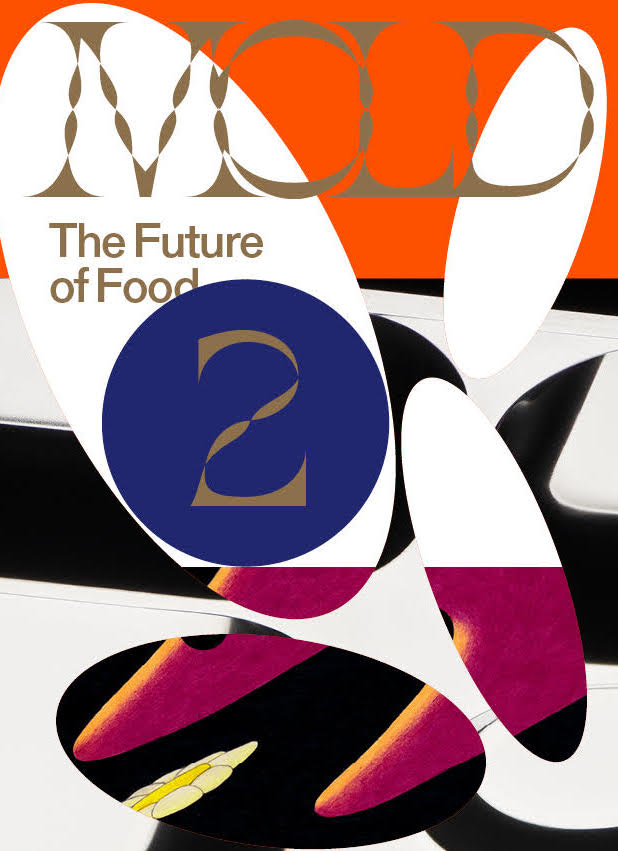 “Everyone knows that food magazines are supposed to be full of delicious recipes and gorgeous photography of dishes that you can either buy or make for yourself in your fantastically successful life,” writes Steve Watson in Stack.
“Everyone knows that food magazines are supposed to be full of delicious recipes and gorgeous photography of dishes that you can either buy or make for yourself in your fantastically successful life,” writes Steve Watson in Stack.
“But Mold magazine takes a different approach – instead of promoting aspirational images of food and drink, it questions why we eat the things we do, and how that might need to change if we’re going to meet the demands of feeding a rapidly expanding global population,” he notes.
Indeed, when MOLD launched last fall, the founders wanted to draw attention away from the current “fetishisation” of food and help us better understand the coming food crisis. Their editorial mission is to “highlight the way design can offer solutions and affect positive change,” Stack’s Grace Wang wrote at the time.
Editor and co-founder Lin Yee Yuan recently spoke to Stack’s Steven Watson at the EDCH editorial design conference about her driving passion for the magazine.
“MOLD magazine is about designing the future of food,” she explains. “So each issue actually looks at a different theme around how designers might feed nine billion people by the year 2050.”
She references the United Nations whitepaper released a few years ago that warned if we don’t drastically change the way we eat and drink, we won’t be able to feed our planet’s population. It’s a sobering thought and a sharp counterpoint in this age Unicorn Frappuccinos all over Instagram.
The decision to publish on paper was part of the mission, too.
“So the impetus behind Mold Magazine was to create an opportunity where we could do an in-depth exploration around a single idea,” Yuan said last fall. “Print has a way of finding its audience in a more organic, and sometimes more personal way. We wanted people to sit with the idea that they might be able to affect change in a really specific way and be inspired by the work that others are doing to create a more sustainable and resilient food system.”
It’s important work, and they’ve chosen a fascinating format in which to do it. Listen to the full interview on Soundcloud, and support their work by purchasing a copy. It’s good stuff, for a very good reason.
